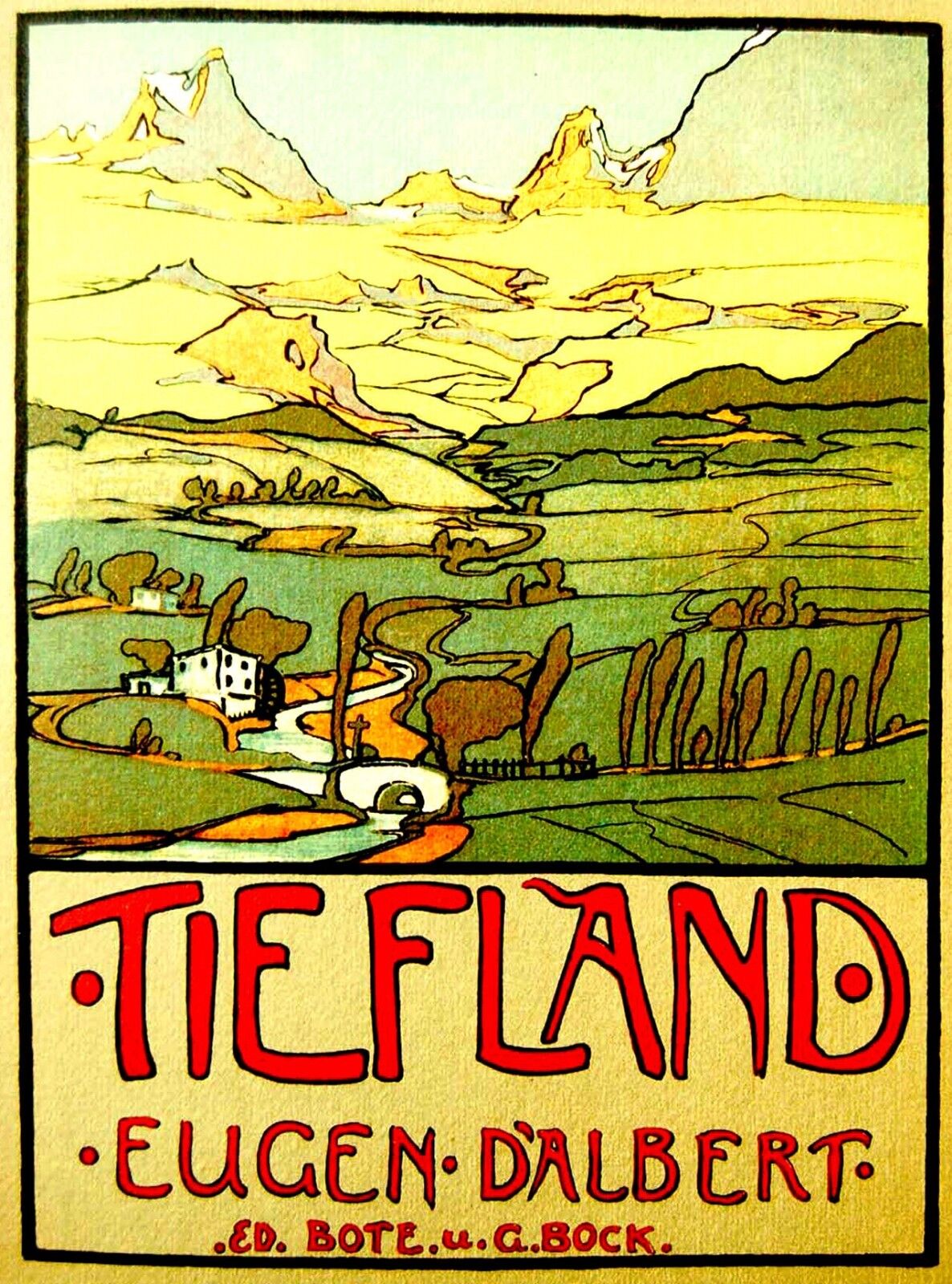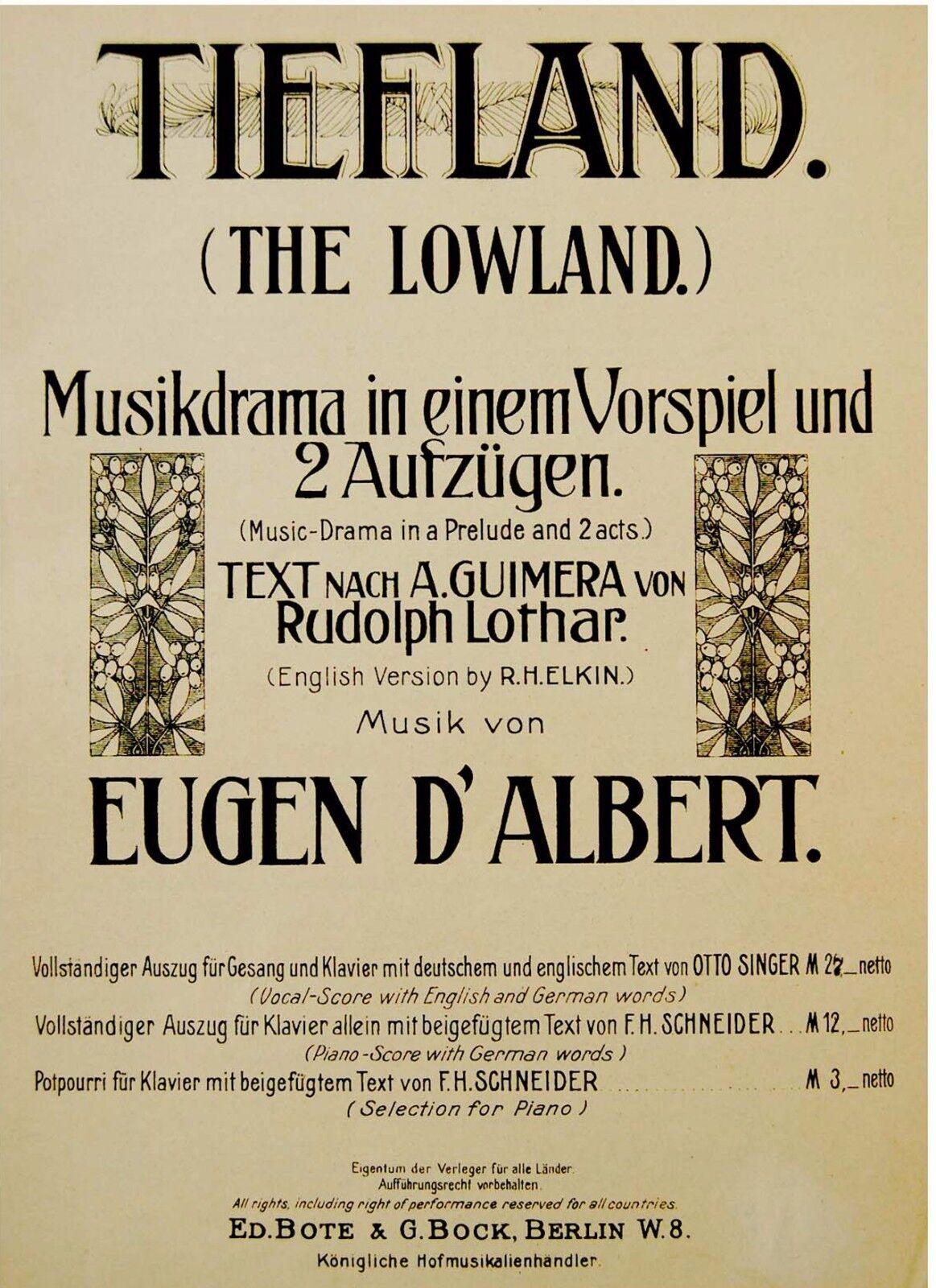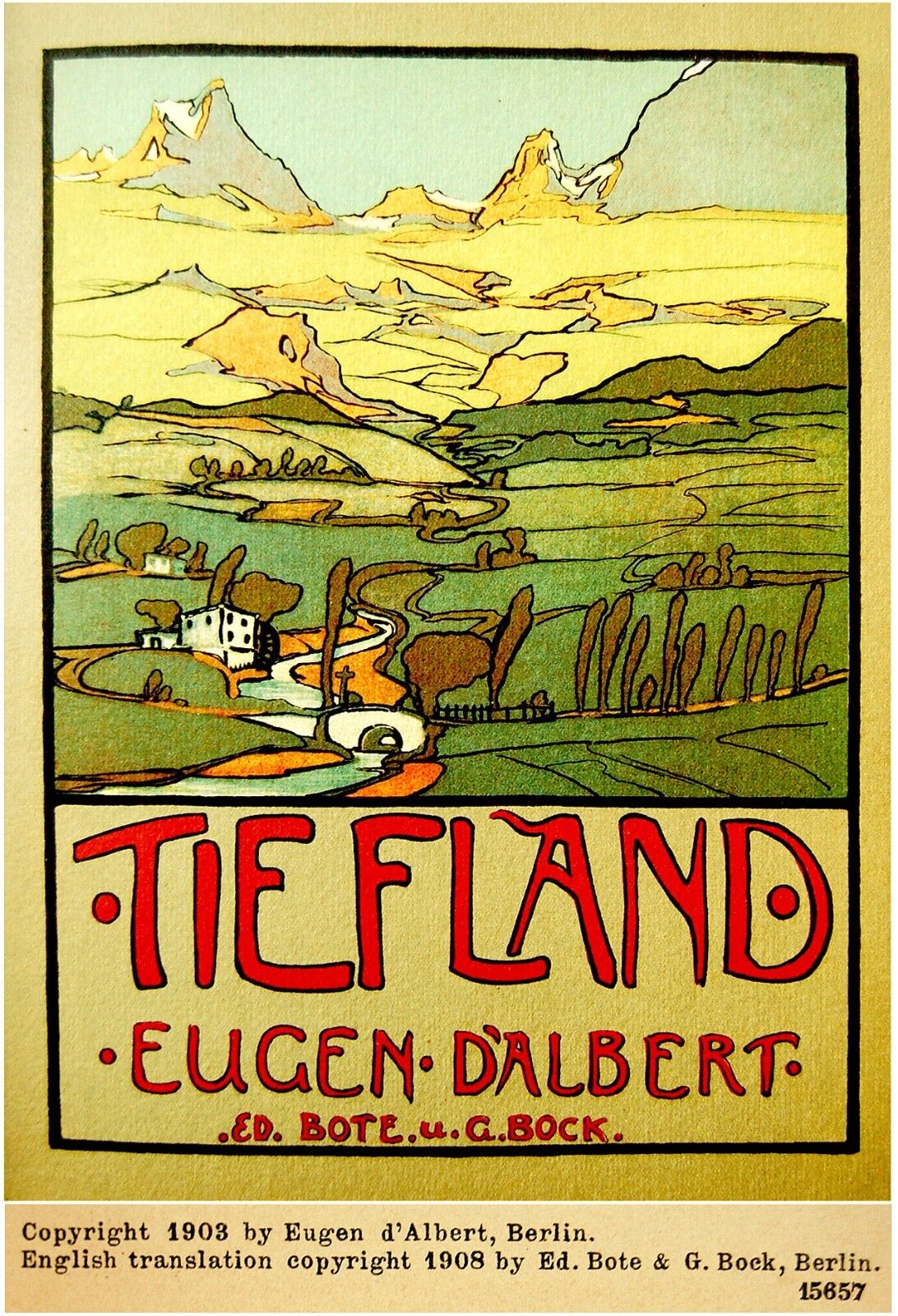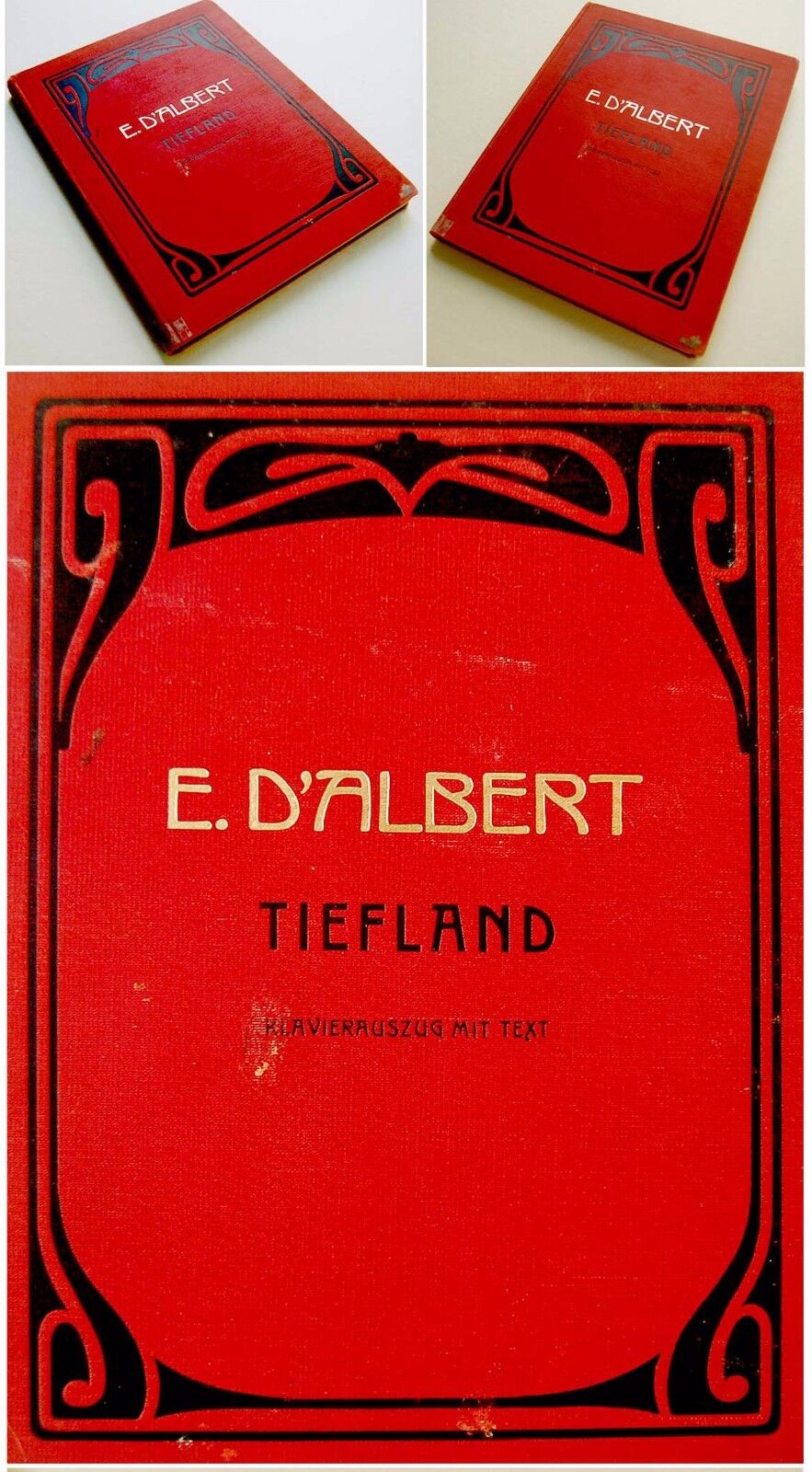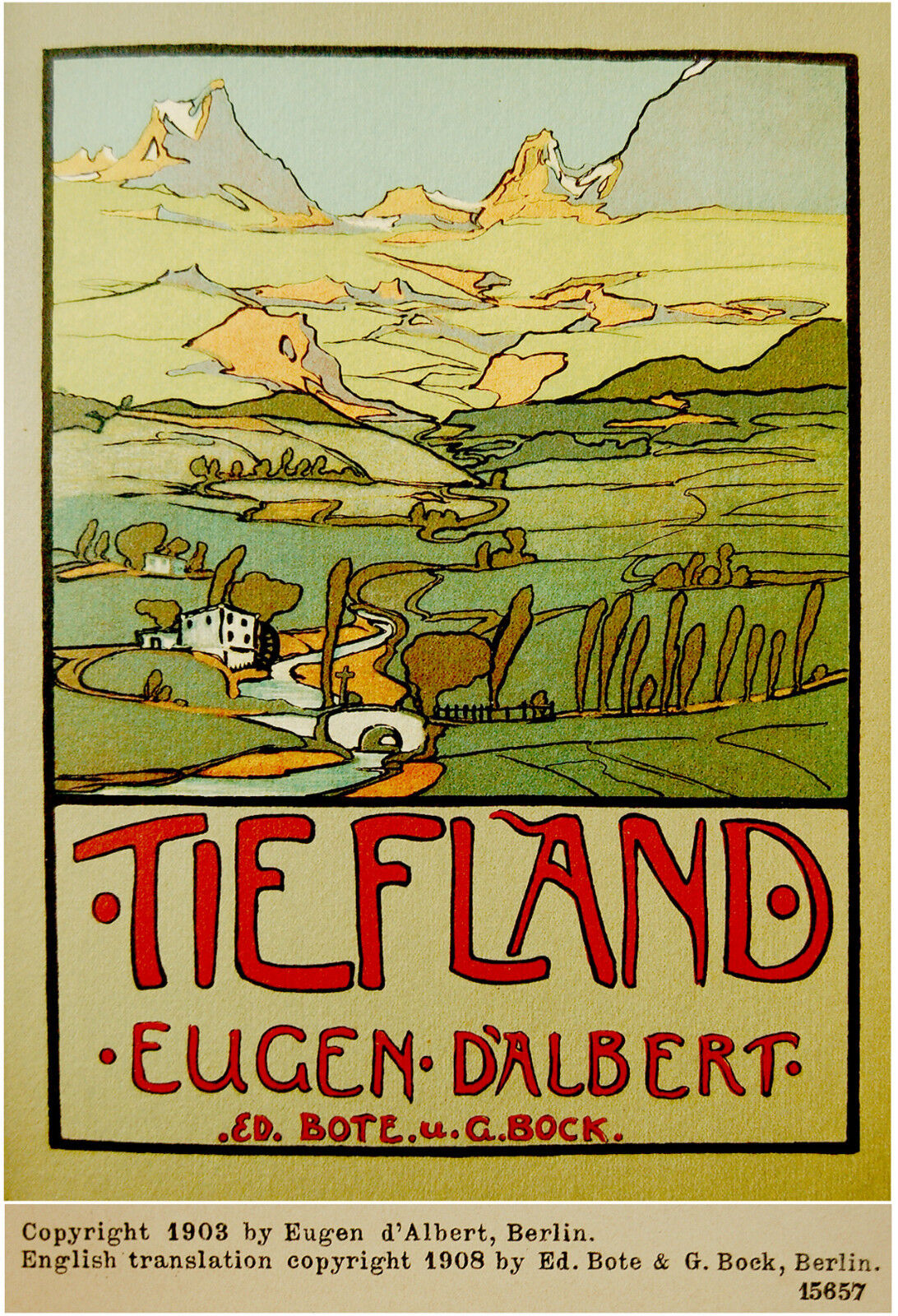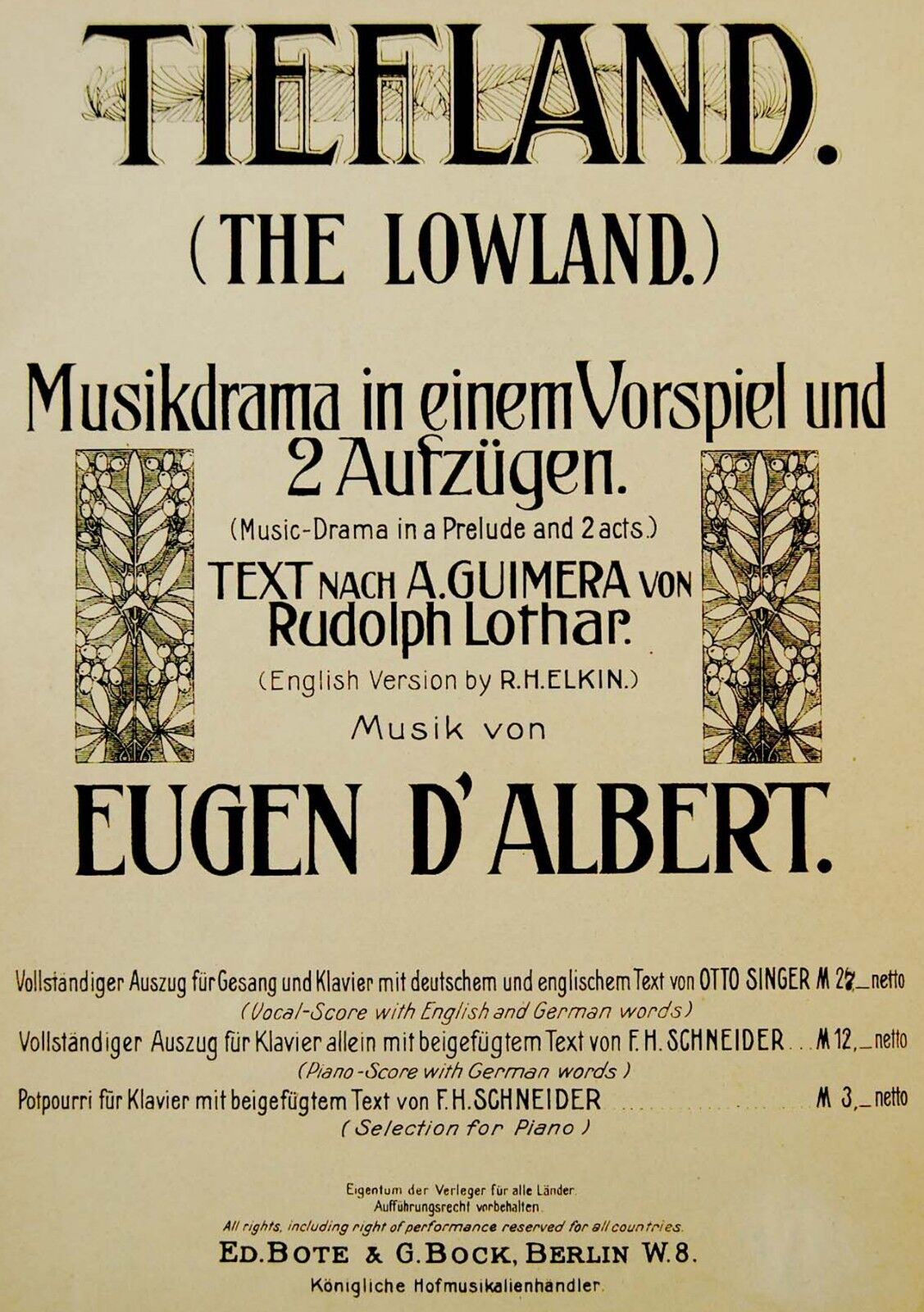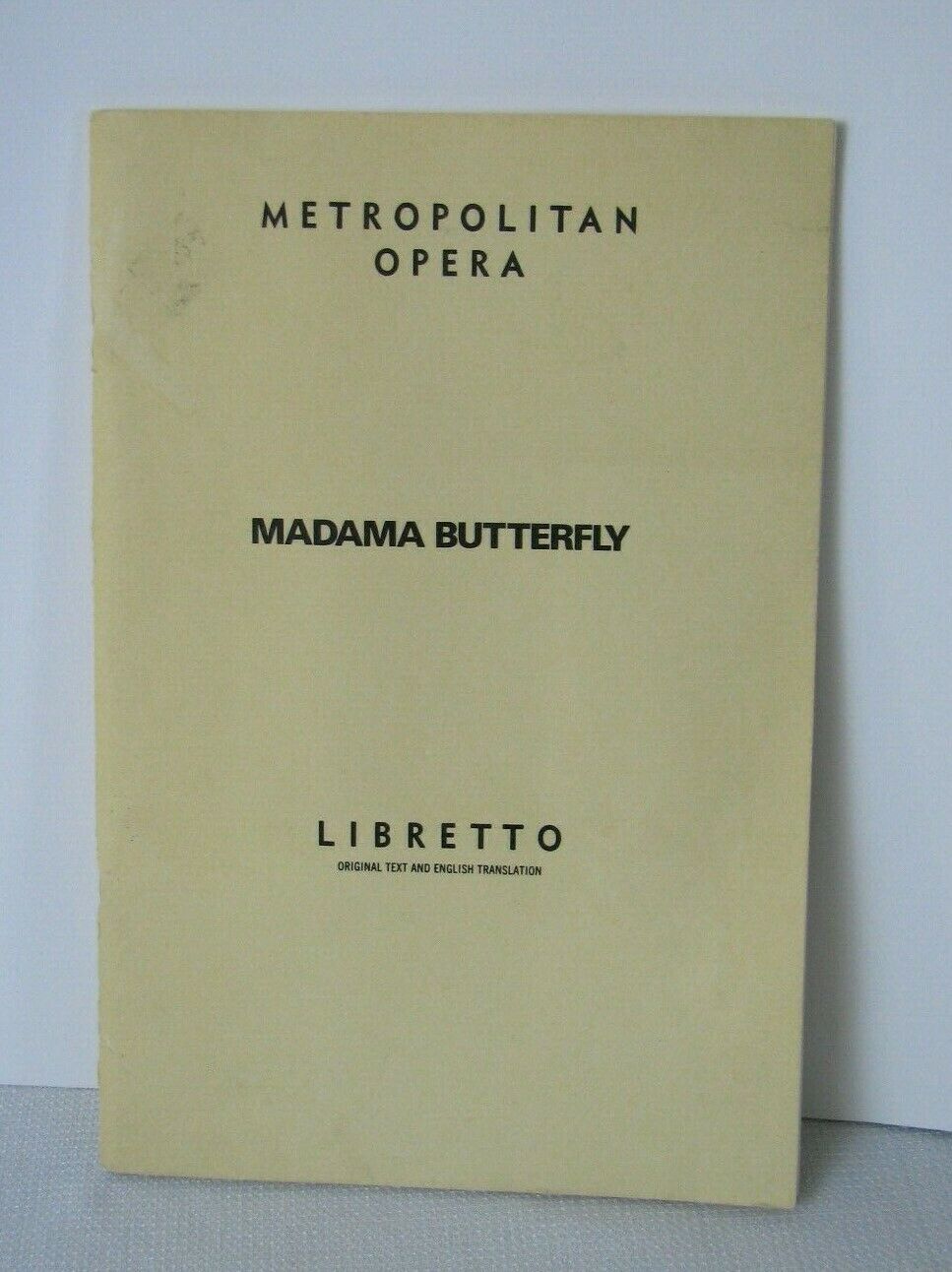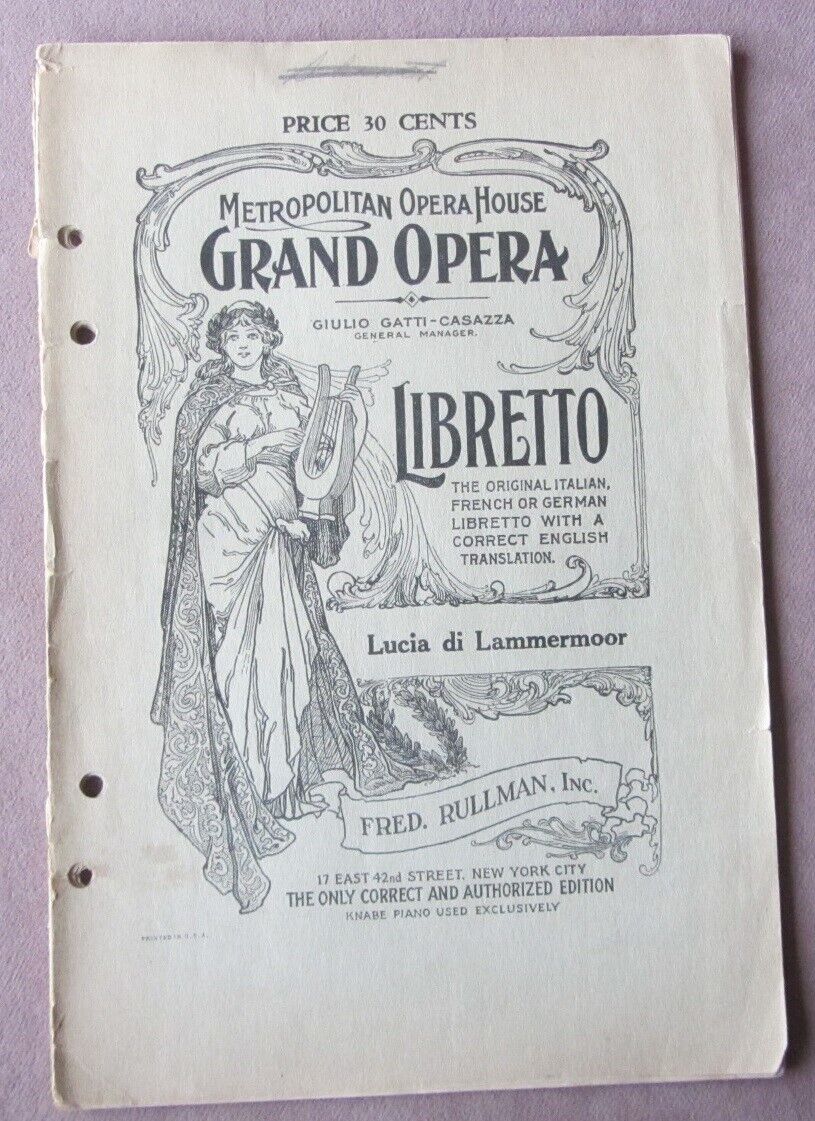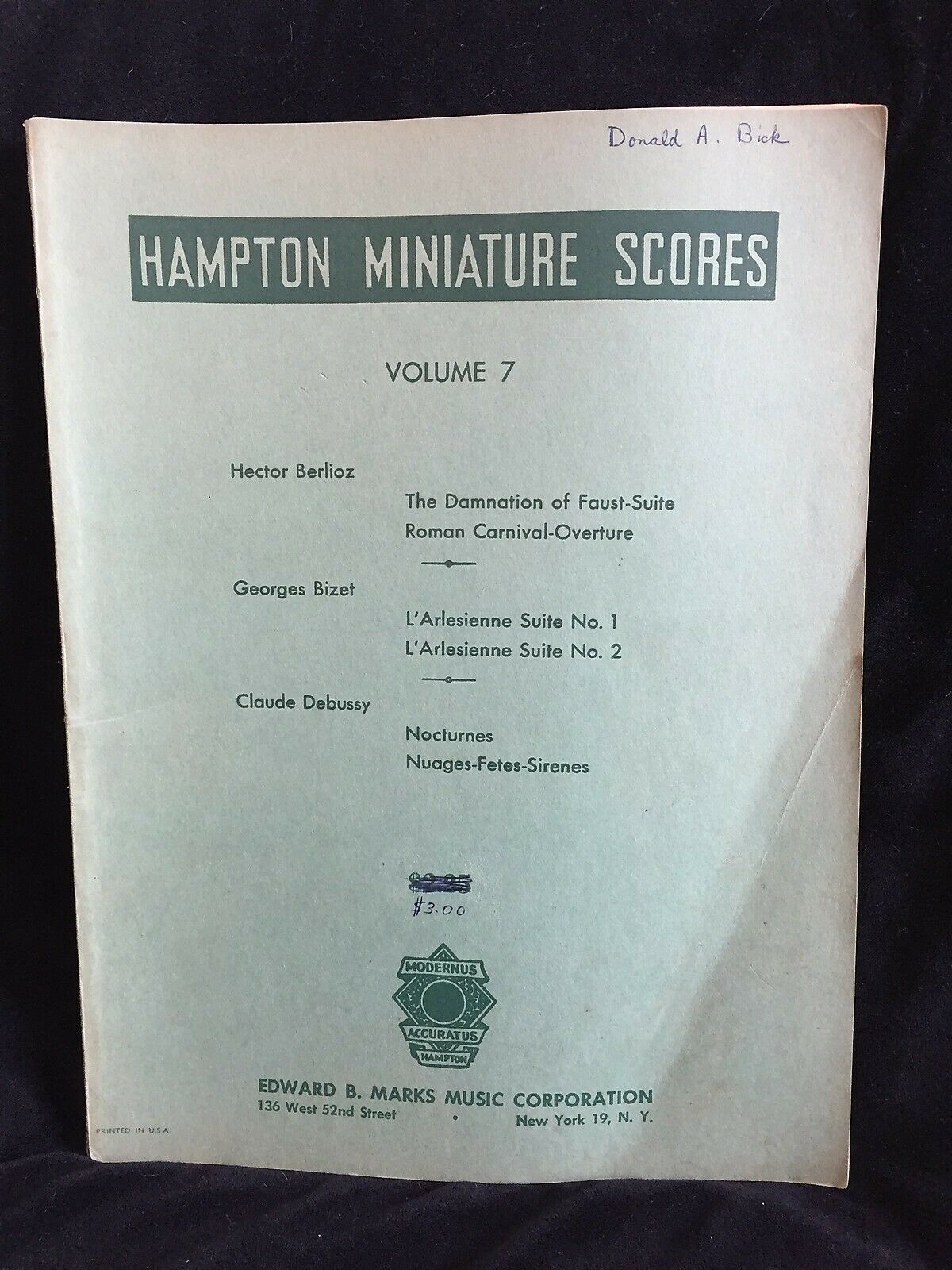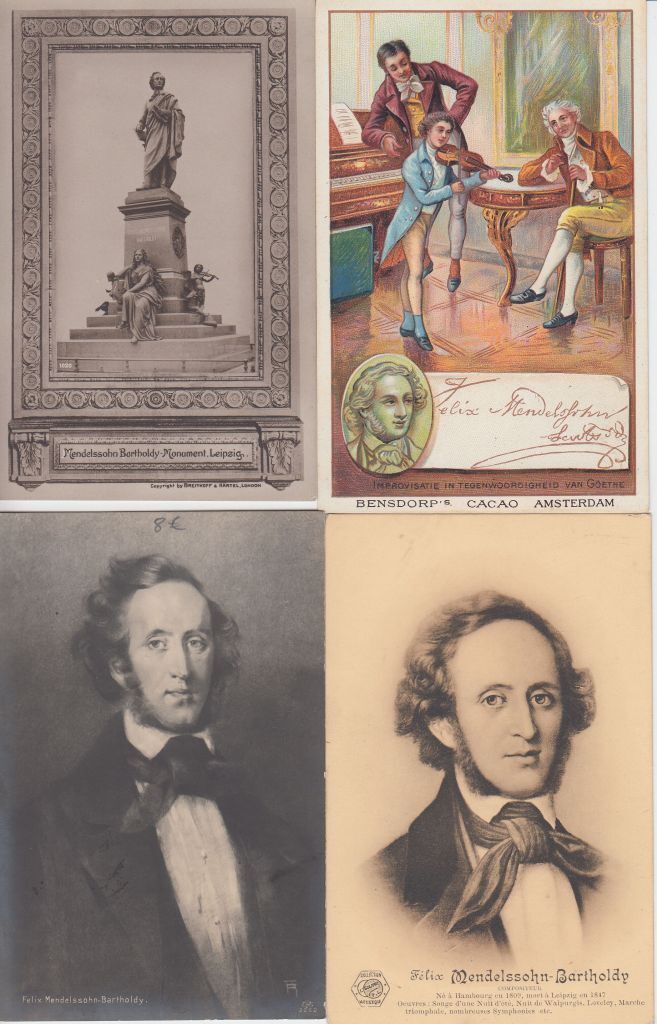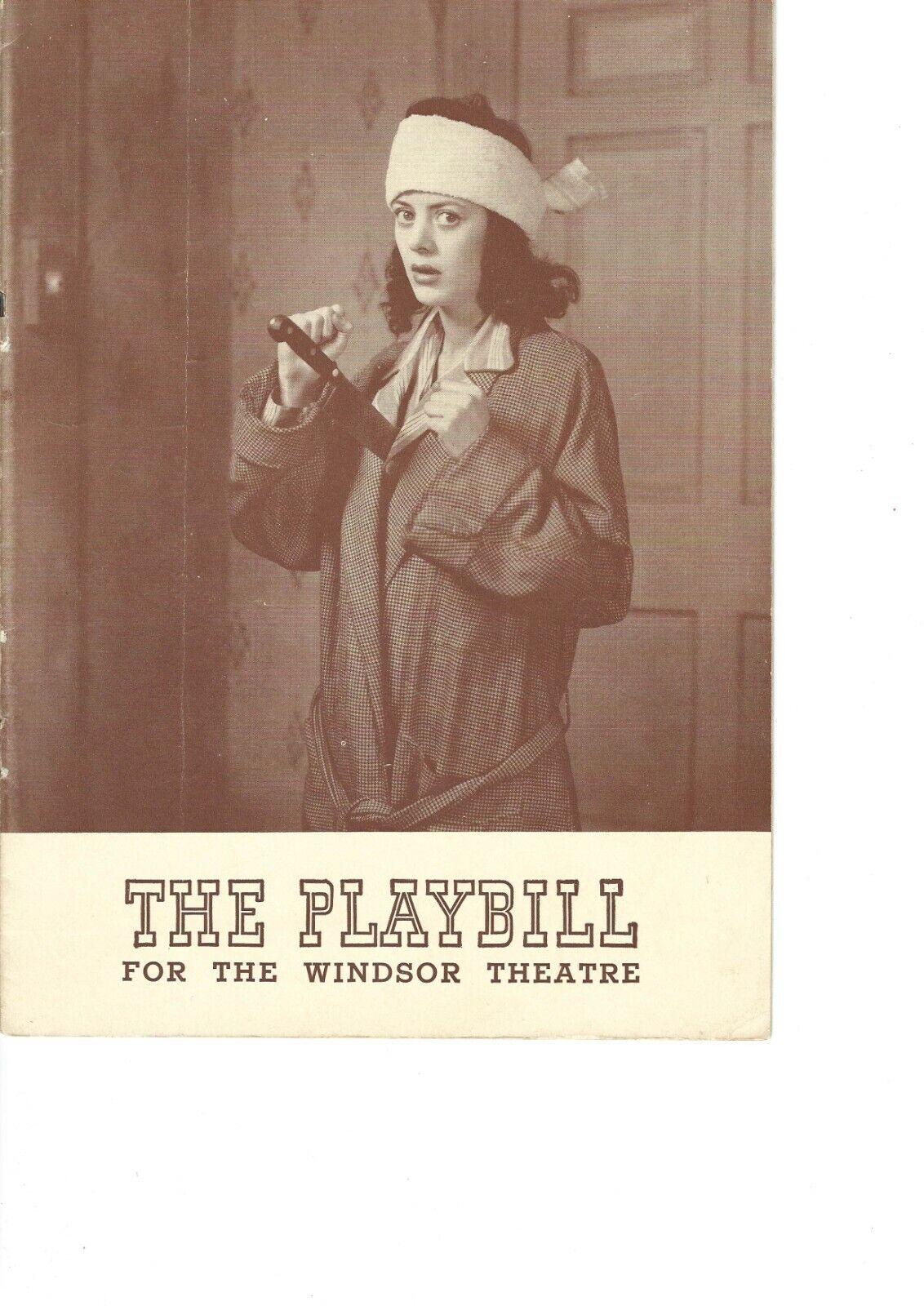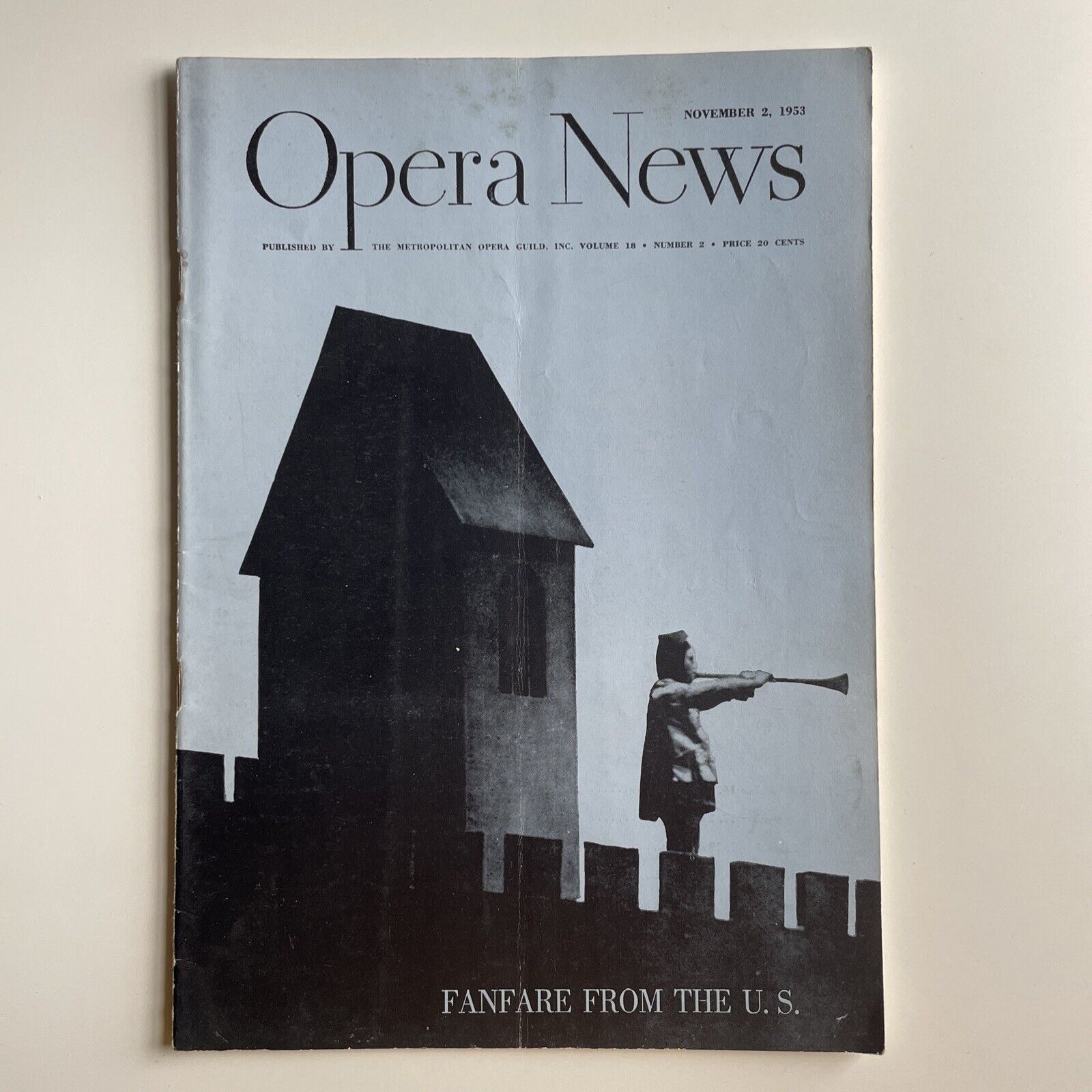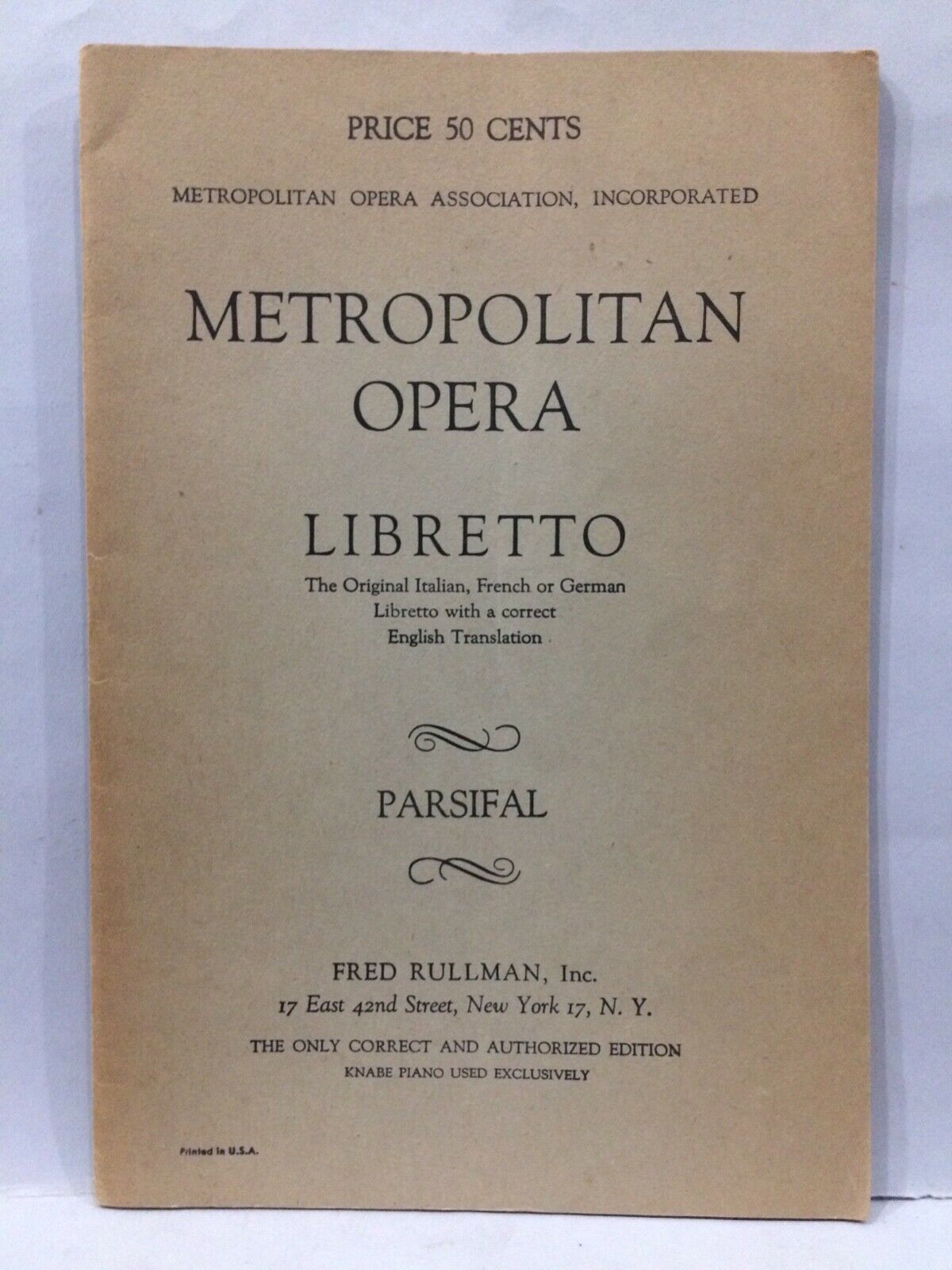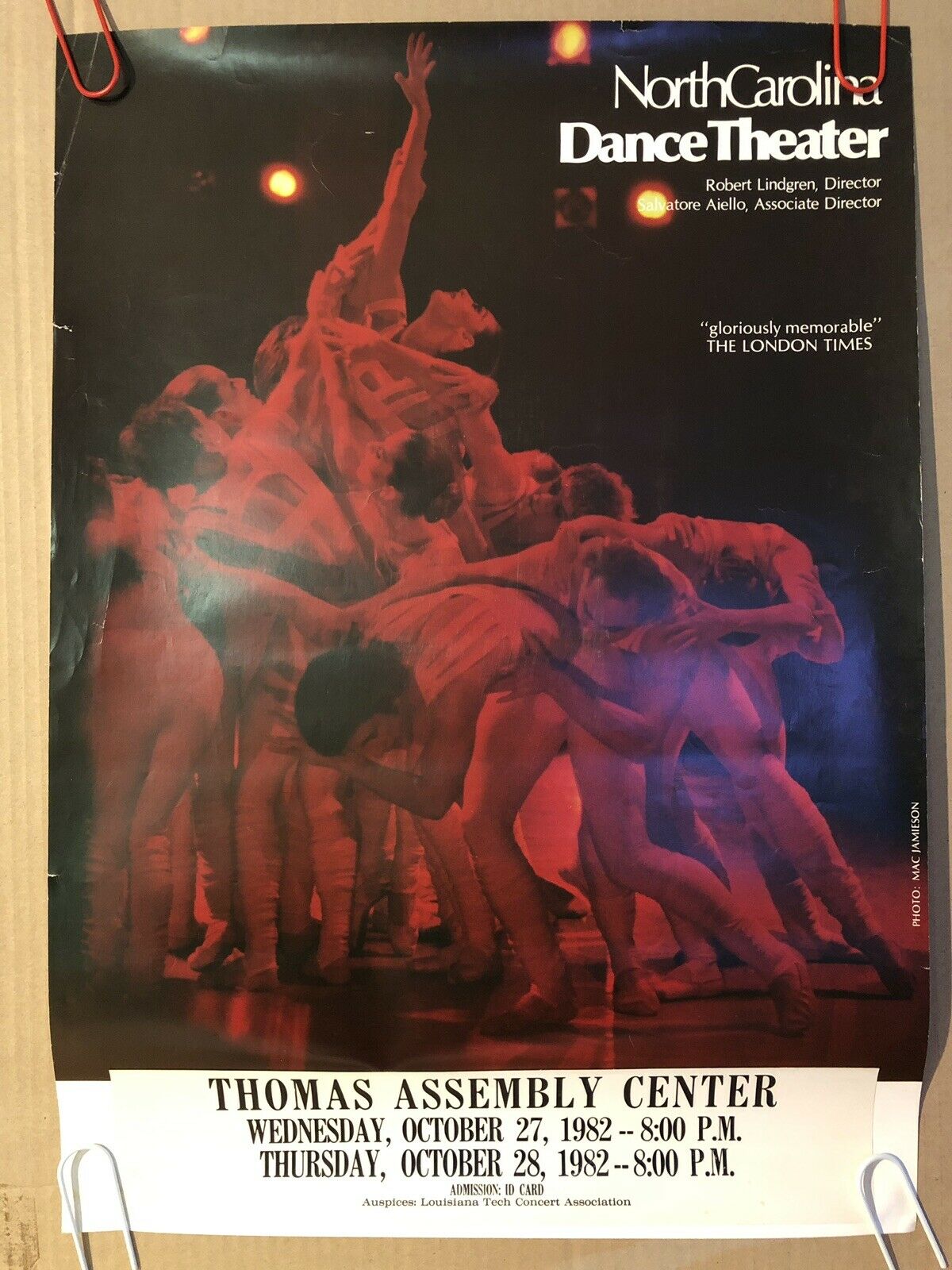-40%
1908 Original OPERA 1st English EUGENE D'ALBERT Score TIEFLAND Luxury EDITION
$ 50.16
- Description
- Size Guide
Description
DESCRIPTION:
Up for auction is a rare musical artifact. Being an over 100 years old ORIGINAL ANTIQUE MUSICAL SCORE , Namely the FIRST EDITION in the ENGLISH LANGUAGE of the EUGENE D'ALBERT opera , The much beloved popular piece "TIEFLAND" . This FIRST English EDITION was published in BERLIN by "Ed. BOTE & G.BOCK. Berlin W8" Number 15657 in 1908. It's a LUXURIOUS EDITION . Luxurious decorated RED CLOTH binding with gilt headings. The inner front page is an exquisite LITHOGRAPH , Printed on extremely heavy stock. Illustrated flyleaves. Size around
12" x 9.5" . 290 pp . Very good condition .Used. Clean. Tightly bound. Slight cover wear
( Pls look at scan for accurate AS IS images )
Will be sent inside a protective packaging.
AUTHENTICITY
: The publication is fully guaranteed ORIGINAL from 1908 , NOT a reprint or a recent edition , It holds a life long GUARANTEE for its AUTHENTICITY and ORIGINALITY.
PAYMENTS
:
Payment method accepted : PAYPAL & All credit cards.
SHIPPING
:
Shipp worldwide via registered airmail is $ 29 . Will be sent inside a protective packaging .
Handling around
5-10 days after payment.
Eugène) Francois Charles d'Albert (10 April 1864 – 3 March 1932) was a Scottish-born German pianist and composer. Educated in Britain, d'Albert showed early musical talent and, at the age of seventeen, he won a scholarship to study in Austria. Feeling a kinship with German culture and music, he soon emigrated to Germany, where he studied with Franz Liszt and began a career as a concert pianist. D'Albert repudiated his early training and upbringing in Scotland and considered himself German. While pursuing his career as a pianist, d'Albert focused increasingly on composing, producing 21 operas and a considerable output of piano, vocal, chamber and orchestral works. His most successful opera was Tiefland, which premiered in Prague in 1903. His successful orchestral works included his cello concerto (1899), a symphony, two string quartets and two piano concertos. In 1907, d'Albert became the director of the Hochschule für Musik in Berlin, where he exerted a wide influence on musical education in Germany. He also held the post of Kapellmeister to the Court of Weimar. D'Albert was married six times, including to the pianist-singer Teresa Carreño, and was successively a British, German and Swiss citizenD'Albert was born at 4 Crescent Place,[1] Glasgow, Scotland, to an English mother, Annie Rowell, and a German-born father of French and Italian descent, Charles Louis Napoléon d'Albert (1809–1886), whose ancestors included the composers Giuseppe Matteo Alberti and Domenico Alberti.[2] D'Albert's father was a dancer, pianist and music arranger who had been ballet-master at the King's Theatre and at Covent Garden.[3][4] D'Albert was born when his father was 55 years old. The Musical Times wrote in 1904 that "This, and other circumstances, accounted for a certain loneliness in the boy's home-life and the years of his childhood. He was misunderstood, and 'cribbed, cabined, and confined' to such an extent as to largely prejudice him against the country which gave him birth."[5]D'Albert was brought up in Glasgow and taught music by his father until he won a scholarship to the new National Training School for Music (forerunner of the Royal College of Music) in London, which he entered in 1876 at the age of 12.[5] D'Albert studied at the National Training School with Ernst Pauer, Ebenezer Prout, John Stainer and Arthur Sullivan. By the age of 14, he was winning public praise from The Times as "a bravura player of no mean order" in a concert in October 1878. He played Schumann's Piano Concerto at the Crystal Palace in 1880, receiving more encouragement from The Times: "A finer rendering of the work has seldom been heard."[6][7] Also in 1880, d'Albert arranged the piano reduction for the vocal score of Sullivan's sacred music drama The Martyr of Antioch, to accompany the chorus in rehearsal.[8] He is also credited with writing the overture to Gilbert and Sullivan's 1881 opera, Patience.[9]For many years, d'Albert dismissed his training and work during this period as worthless.[10] The Times wrote that he "was born and educated in England, and won his earliest successes in England, although, in a freak of boyish impetuosity, he repudiated some years ago all connexion with this country, where, according to his own account, he was born by mere accident and where he learnt nothing."[11] In later years, however, he modified his views: "The former prejudice which I had against England, which several incidents aroused, has completely vanished since many years."[5]CareerIn 1881, Hans Richter invited d'Albert to play his first piano concerto, which was "received with enthusiasm".[5] This seems to have been d'Albert's lost concerto in A major, not the work published three years later as his Piano Concerto No. 1 in B minor, Op. 2.[12] In the same year d'Albert won the Mendelssohn Scholarship, enabling him to study in Vienna, where he met Johannes Brahms, Franz Liszt and other important musicians who influenced his style.[13] D'Albert, retaining his early enthusiasm for German culture and music ("hearing Tristan und Isolde had a greater influence on him than the education he received from his father or... at the National Training School for Music")[2] changed his first name from Eugène to Eugen and emigrated to Germany, where he became a pupil of the elderly Liszt in Weimar.[14]In Germany and Austria, d'Albert built a career as a pianist. Liszt called him "the young Tausig", and d'Albert can be heard in an early recording of Liszt works. He played his own piano concerto with the Vienna Philharmonic Orchestra in 1882, the youngest pianist who had appeared with the orchestra.[5] D'Albert toured extensively, including in the United States from 1904 to 1905. His virtuoso technique was compared to that of Busoni.[15] He was praised for his playing of J. S. Bach's preludes and fugues and of Beethoven's sonatas.[16] "As an exponent of Beethoven, Eugen d'Albert has few, if any, equals."[5] Gradually, d'Albert's work as a composer occupied his time more and more, and he reduced his concert playing.[14] He was the recipient of a number of dedications, most notably of Richard Strauss's Burleske in D minor, which he premiered in 1890.[2][13]D'Albert was a prolific composer. His output includes a large volume of successful piano and chamber music and lieder. He also composed twenty-one operas, in a wide variety of styles, which premiered mostly in Germany. His first, Der Rubin (1893) was an oriental fantasy; Die Abreise (1898), which established him as an opera composer in Germany, was a one-act domestic comedy; Kain (1900) was a setting of the biblical story; and one of his last operas, Der Golem, was on a traditional Jewish theme.[16] His most successful opera was his seventh, Tiefland, which premiered in Prague in 1903. When Thomas Beecham introduced the opera to London, The Times observed, "the scoring owes more than a little to the discipline of Sullivan; there is also a curiously English fragrance".[17] Tiefland played in opera houses throughout the world and has retained a place in the standard German and Austrian repertoire, with a production at the Deutsche Oper Berlin, in November 2007. According to biographer Hugh Macdonald, it "provides a link between Italian verismo and German expressionist opera, although the orchestral textures recall a more Wagnerian language."[14] Another stage success was a comic opera called Flauto solo in 1905. D'Albert's most successful orchestral works included his cello concerto (1899), a symphony, two string quartets and two piano concertos. "Though not a composer of profound originality... he had an unfailing sense of dramatic appropriateness and all the resources of a symphonic technique to give it expression and was thus able to achieve success in so many styles".[16]D'Albert edited critical editions of the scores of Beethoven and Bach, transcribed Bach's organ works for the piano and wrote cadenzas for Beethoven's piano concertos. In 1907, he succeeded Joseph Joachim as director of the Hochschule für Musik in Berlin, in which capacity he had a wide influence on musical education in Germany. He also held the post of Kapellmeister to the Court of Weimar.[16]Personal life and deathD'Albert's friends included Richard Strauss, Hans Pfitzner, Engelbert Humperdinck, Ignatz Waghalter and Gerhart Hauptmann, the dramatist. He was married six times and had eight children. The first wife was Louise Salingré. The second, from 1892 to 1895, was the Venezuelan pianist, singer and composer Teresa Carreño, herself much married and considerably older than d'Albert. D'Albert and Carreño were the subject of a famous joke: "Come quick! Your children and my children are quarrelling again with our children!"[18] The line, however, has also been attributed to others. His later wives were mezzo-soprano Hermine Finck, who originated the role of the witch in Humperdinck's Hansel and Gretel; actress Ida Fulda; Friederike ("Fritzi") Jauner; and Hilde Fels. His last companion was a mistress, Virginia Zanetti.[14]In 1914, d'Albert moved to Zurich and became a Swiss citizen. He died in 1932 at the age of 67 in Riga, Latvia, where he had travelled for a divorce from his sixth wife. In the weeks preceding his death, d'Albert was the subject of attacks by the press in Riga concerning his personal life.[19] D'Albert was buried in the cemetery overlooking Lake Lugano in Morcote, Switzerland.WorksRecordingsAs pianist, d'Albert did not record extensively, although his recordings represent a wide range of music. They include his own Scherzo, Op. 16; Capriolen, Op. 32; Suite, Op. 1, Gavotte and Minuet; and piano arrangements from his opera Die Toten Augen. He made several Beethoven recordings, including the Piano Sonatas Nos. 18 and 21 ("Waldstein"), and the "Spring" Sonata for violin and piano (with Andreas Weissgerber). A selection of Chopin pieces were recorded in the 1910s and 1920s, with études, polonaises and waltzes represented. Perhaps surprisingly, his teacher Liszt is not strongly represented among d'Albert's recordings, though he committed "Au bord d'une source" from Années de pèlerinage (1st year) to disc in 1916. Brahms, Mozart, Schubert and Weber also feature in his discography.[20]As a composer, d'Albert has been more widely represented on record in recent years than previously. Some modern recordings include:[20] Piano Concertos No. 1 in B minor, Op. 2, and No. 2 in E major, Op. 12 Piers Lane/BBC Scottish Symphony Orchestra/Alun Francis Joseph Banowetz/ Moscow Symphony Orchestra/ Dmitry Yablonsky String Quartets No. 1 in A minor, Op. 7, and No. 2 in E flat, Op. 11 Sarastro Quartet Piano Sonata in F-sharp minor, Op. 10; Klavierstücke, Op. 16; Heft 1 and Heft 2, Serenata and Capriolen Fünf schlichte Klavierstücke Piers Lane Tiefland Éva Marton; René Kollo; Bernd Weikl; Kurt Moll; Münchner Rundfunkorchester/Marek Janowski Margherita Kenney; Waldemar Kmentt; Otto Wiener; Vienna Symphony Orchestra/ F. Charles Adler Lisa Gasteen; Johan Botha; Falk Struckmann; Vienna Radio Symphony Orchestra/ Bertrand de Billy Die Abreise Hermann Prey; Edda Moser; Peter Schreier; Philharmonia Hungarica/János Kulka Eugène Francis Charles d’Albert, kurz Eugen d’Albert (* 10. April 1864 in Glasgow; † 3. März 1932 in Riga) war ein deutscher Komponist und Pianist. D’Albert war der Sohn des Ballettkomponisten Charles d’Albert (1809–1886), der in Schottland als Sohn eines französischen Vaters und einer englischen Mutter geboren wurde. Unter seinen Vorfahren befinden sich die italienischen Komponisten Giuseppe Matteo Alberti (1685–1751) und Domenico Alberti (um 1710–1740). D’Albert besaß bis 1918 die englische Staatsbürgerschaft und nahm dann die schweizerische an.[1] Er fühlte sich jedoch Deutschland verbunden, beherrschte die deutsche Sprache, vertonte ausschließlich deutsche Texte und bevorzugte die deutsche Form seines Vornamens.Er erhielt Musikunterricht von seinem Vater, kam mit zehn Jahren an die New Music School in London und war dort Klavierschüler von Ernst Pauer, der von den pianistischen Fähigkeiten dieses Schülers beeindruckt war.1881 lernte d’Albert Franz Liszt kennen, bei dem er in Weimar sein Klavierspiel vervollkommnete. Zahlreiche Konzertreisen schlossen sich an diese Ausbildung an, und d’Albert wurde besonders als Interpret der Werke Johann Sebastian Bachs und Ludwig van Beethovens berühmt. Sein teilweise recht willkürliches Spiel wurzelte noch ganz in der Virtuosentradition des 19. Jahrhunderts; seine Bach-Bearbeitungen wirken heutzutage antiquiert. Auch die ersten eigenen Kompositionen erschienen nun, darunter die Klaviersuite d-Moll op.1 (1883), sein erstes Klavierkonzert (1884), die Sinfonie F-Dur (1886) und das erste Streichquartett (1887). In dieser Zeit galt d’Albert als der bedeutendste Pianist der Gegenwart.[2] Regelmäßig trat er als Gastdozent und Solist bei Konzerten im Berliner Klindworth-Scharwenka-Konservatorium auf.1893 wandte sich d’Albert mit dem Chorwerk Der Mensch und das Leben nach Otto Ludwig erstmals der Vokalmusik zu. Im selben Jahr wurde seine erste Oper Der Rubin nach Friedrich Hebbel uraufgeführt. Wie ihre Nachfolger Ghismonda (1895) und Gernot (1897) stand sie unter dem Einfluss Richard Wagners. Der heitere Einakter Die Abreise (1898) zeigte bereits eine eigene musikalische Sprache, doch der Durchbruch als Opernkomponist gelang erst mit Tiefland (1903), seiner meistgespielten Oper. Mit diesem Werk schuf d’Albert eine überzeugende deutsche Variante des italienischen Verismus, die auch sein weiteres Opernschaffen bestimmte.D’Albert schrieb 21 Opern und vernachlässigte für diese Arbeit mehr und mehr sein Klavierspiel, doch konnte er den Tiefland-Erfolg nicht wiederholen. Unter den späteren Werken ragen Die toten Augen (1916) und Der Golem (1926) heraus; jedoch leiden die meisten seiner Musiktheaterwerke unter den Schwächen der Libretti. Wiederentdeckungen mancher Stücke wären jedoch wegen der musikalischen Qualitäten wünschenswert. D’Albert war sechsmal verheiratet, unter anderem mit der Sängerin Hermine Finck und der Pianistin und Komponistin Teresa Carreño, mit der er 1891 bis 1895 in der Villa Teresa in Kötitz bei Dresden lebte. Für die Scheidung von seiner sechsten Frau reiste d’Albert aus rechtlichen Gründen nach Riga, wo er 1932 starb. Er ist auf dem Friedhof von Morcote (Schweiz) begraben.WerkeOpern Der Rubin, Oper 2 Akte. Libretto: E.d’Albert, nach Friedrich Hebbel. Uraufführung: 12. Oktober 1893 Karlsruhe, Hoftheater Ghismonda, Oper 3 Akte. Libretto, E.d’Albert, nach Karl Immermann Die Opfer des Schweigens. Uraufführung: 28. November 1895 Dresden, Hoftheater Gernot, Oper 3 Akte. E.d’Albert, nach Gustav Kastropp. Uraufführung: 11. April 1897 Mannheim, Hoftheater Die Abreise, Musikalisches Lustspiel 1 Akt (50 Min.). Libretto: Ferdinand Graf von Sporck, nach August Ernst von Steigentesch. Uraufführung: 28. Oktober 1898 Frankfurt, Opernhaus. Holländisch: Februar 1902 Amsterdam. Kroatisch: 29. Oktober 1915 Zagreb. Englisch: 3. September 1925 London. Französisch: 7. November 1932 Brüssel Kain, Oper 1 Akt. Libretto: Heinrich Bulthaupt. Uraufführung: 17. Februar 1900 Berlin, Königl.Opernhaus Der Improvisator, Oper 3 Akte. Gustav Kastropp, nach Victor Hugo Angelo, der Tyrann von Padua. Uraufführung: 26. Februar 1902 Berlin, Königl.Opernhaus Tiefland, Musikdrama 2 Akte und Prolog (135 Min.). Libretto: Rudolf Lothar, nach Àngel Guimerà Terra baixa. Uraufführung: 15. November 1903 Prag, Neues Deutsches Theater. Flämisch: 1. Dezember 1906 Antwerpen. Schwedisch: 9. Oktober 1908 Stockholm. Ungarisch: 17. November 1908 Budapest. Slowenisch: 1909 Ljubljana. Dänisch: 21. Oktober 1909 Kopenhagen. Italienisch: 18. Januar 1910 Barcelona. Englisch: 5. Oktober 1910 London. Kroatisch: 18. November 1910 Zagreb. Polnisch: März 1911 Warschau. Französisch: 21. März 1911 Nizza. Norwegisch: 12. Dezember 1913 Oslo. Russisch: 14. Dezember 1915 Petrograd. Lettisch: 2. November 1920 Riga. Rumänisch: 1924 Clausenburg. Flauto solo, Musikalisches Lustspiel 1 Akt (60 Min.). Libretto: Hans von Wolzogen. Uraufführung: 12. November 1905 Prag, Neues Deutsches Theater Tragaldabas, der geborgte Ehemann, komische Oper 3 Akte. Libretto: Rudolf Lothar, nach Auguste Vacquérie. Uraufführung: 3. Dezember 1907 Hamburg, Stadttheater Izëyl, Oper 3 Akte. Libretto: Rudolf Lothar, nach Paul Armand Silvestre und Eugène Morand. Uraufführung: 6. November 1909 Hamburg, Stadttheater Die verschenkte Frau, Oper 3 Akte. Libretto: Rudolf Lothar, nach E.Antony. Uraufführung: 6. Februar 1912 Wien, Hofoper Liebesketten, Oper 3 Akte. Libretto: Rudolf Lothar nach Angel Guimera La hija del mar. Uraufführung: 12. November 1912 Wien, Volksoper Wien. Neufassung: 8. März 1918 Berlin, Dt.Opernhaus Die toten Augen, eine Bühnendichtung 1 Akt und Prolog (120 Min.). Libretto: Hanns Heinz Ewers und Marc Henry, nach Marc Henry Les yeux morts. Komponiert 1912/13. Uraufführung: 5. März 1916 Dresden, Hofoper. Dänisch: 17. März 1918 Kopenhagen. Schwedisch: 27. September 1920 Stockholm. Polnisch: Herbst 1920 Warschau. Ungarisch: 12. November 1921 Budapest. Werner Bollert: d'Albert, Eugen Franz Karl. In: Neue Deutsche Biographie (NDB). Band 1, Duncker & Humblot, Berlin 1953, ISBN 3-428-00182-6, S. 138 (Digitalisat). Charlotte Pangels: Eugen d'Albert, Atlantis Musikbuch-Velag, Zürich 1981 Hans Arnold: 6 Frauen um Eugen d'Albert: Lebensroman eines großen Künstlers, Eden-Verlag, Berlin 1959 Pianist and composer Eugen d'Albert was a key figure in German post-Romanticism, born to German parents in Glasgow, Scotland. His father, Charles Louis Napoléon d'Albert, was a popular orchestra leader in the U.K. who specialized in light music. D'Albert began his musical training under his father, continuing it with Sir Arthur Sullivan and others. In 1881, D'Albert went to Weimar to study with his idol, Franz Liszt, whose impact on D'Albert's work both as a pianist and a composer proved crucial. Armed with endorsements from Liszt, Clara Schumann, and Anton Rubinstein, D'Albert went on to an enormously successful career as a concert pianist, which lasted for decades. His Piano Concerto No. 1, composed in 1884, was probably the first post-Romantic piano concerto and is one of the most ambitious composed before that of Ferruccio Busoni. Like Liszt, D'Albert was a prolific transcriber of non-original works, and in his time D'Albert's editions of the music of Johann Sebastian Bach were held in the same regard as Busoni's. By the early 1890s, D'Albert began to turn his compositional activity away from the keyboard in favor of opera, and he scored his first hit, Die Abreise, in 1898. On November 15, 1903, D'Albert's masterwork, the opera Tiefland, opened in Prague. Tiefland's was an alluring and innovative mixture of Italian verismo and Viennese operetta, and proved a success beyond D'Albert's wildest hopes, although he would never again match it. D'Albert devoted his remaining compositional activity to opera, and his worklist contains a number of interesting looking projects that await revival. Notable entries would include D'Albert's opera of Die Toten Augen (1912) written with the notoriously decadent novelist Hannes Heinz Ewers, the music drama Der Golem (1926) and the Zeitoper Die schwarze Orchidee (1928), which like Brecht and Weill's Der Dreigroschenoper incorporated the style of continental jazz. D'Albert's final opera, Mister Wu, was left unfinished at his death and was completed by conductor Leo Blech. Portly, and short in stature, Eugen d'Albert was nonetheless quite a ladies' man and married six times. His most famous marriage was a brief and stormy union to the renowned Spanish concert pianist Teresa Carreño. D'Albert left behind a prodigious amount of recordings and piano rolls, both of his original compositions and those of others, which regrettably remain largely un-documented as of this writing. D'Albert's posthumous reputation has suffered, owing to his deeply felt pro-German sentiments and his apparent unwillingness to adapt to twentieth century trends. D'Albert was not the first to jump on stylistic bandwagons, but even late in life he was able to stylistically move forward in his music. As to the first complaint, and its implied association with National Socialist values, D'Albert never had to face the prospect of accepting or rejecting Nazism, as he died the year before Hitler came to power. Although D'Albert's place in music history is not yet properly evaluated, it is useful to see him as somewhat similar to Richard Strauss, a conservative, but a somewhat eclectic late Romantic. Tiefland remains popular in German-speaking lands and has kept D'Albert's name in circulation even during times of low or non-existent critical approval of his work; there is certainly no marginalizing its tremendous power, beauty, and effectiveness. Tiefland (or The Lowlands) is an opera in a prologue and three acts by Eugen d'Albert, to a libretto in German by Rudolph Lothar. Based on the 1896 Catalan play Terra baixa by Àngel Guimerà, Tiefland was d'Albert's seventh opera, and is the one which is now the best known. Performance history Tiefland was first performed on November 15, 1903 at the Neues Deutsches Theater in Prague, with only limited success.[1][2] Part of the reason for the lukewarm reception may have been because the house's leading dramatic tenor, Wilhelm Elsner, had died suddenly not too long before the opera's premiere, forcing another singer to learn and perform the role of Pedro in a relatively short amount of time. For its next performance, Tiefland was revised by D'Albert and revived in Hamburg and Berlin in 1907, where it played to long runs.[3] Its American premiere took place at the Metropolitan Opera in New York on November 23, 1908 with Emmy Destinn and Erik Schmedes in the two leading roles.[4] The opera is fairly regularly performed in Germany and Austria, with recent new productions at the Hessisches Staatstheater Wiesbaden in April 2007, the Volksoper Wien in October 2007 and at Deutsche Oper Berlin, with Torsten Kerl as Pedro and Nadja Michael as Marta, in November 2007. Performances outside German speaking countries have tended to be more sporadic. Tiefland was performed at the Ankara Opera House in 1951 in a production directed by Carl Ebert with Semiha Berksoy as Marta. It also received a major revival at Washington Opera in 1995 with its first major US production in 81 years, conducted by Heinz Fricke and directed by Roman Terleckyj.[5] In addition to Schmedes and Destinn, notable past performers have included: Kirsten Flagstad who made her stage debut in 1913 at the age of 18 singing the role of Nuri at the National Theater in Oslo; the young Maria Callas who sang the role of Marta at the Olympia Theatre in Athens during the 1945/1946 season; Montserrat Caballé who, like Callas, sang Marta early in her career; and the Danish tenor, Vilhelm Herold who was considered by d'Albert to have been the ideal Pedro.[6] Richard Tauber first performed the role at Dresden in 1918, and recorded the two principal arias in 1928. It remained a favourite role, which he performed widely until 1940 in Switzerland. The best-known film adaptation of the opera was by the German director Leni Riefenstahl, with Riefenstahl herself playing Marta. The film, begun in 1940, but not released until 1954, used Roma slave labor from a German transportation camp for some of the extras, many of whom were sent to Auschwitz before the end of the war.[7] Principal roles Role[1] Voice type[1] Premiere Cast[2] 15 November 1903 (Conductor: Leo Blech) Marta, a servant and ward of Sebastiano, loved by both Sebastiano and Pedro soprano Irene Alföldy Pedro, a shepherd in Sebastiano's service tenor Desider Arànyi Sebastiano, a rich landowner baritone Erich Hunold Tommaso, an elderly man in the district bass Alexander Haydter Nuri, a servant of Sebastiano and Marta's friend soprano Gertrude Förstel Pepa, a servant of Sebastiano soprano Martha Frank-Blech Antonia, a servant of Sebastiano mezzo-soprano Elsa Reich Rosalia, a servant of Sebastiano contralto Lina Carmasini Moruccio, a miller in Sebastiano's service bass Mathieu Frank Nando, a shepherd in Sebastiano's service tenor Josef Pauli Synopsis Before the opera begins: Years earlier, Marta, the daughter of a strolling player, had been induced to live with Sebastiano, a wealthy landowner in exchange for the gift of a mill to her father. Sebastiano is about to marry a wealthy heiress. In order to keep his mistress, Marta, nearby and continue their affair, he plans to have her marry Pedro, one of his shepherds. Prologue The Pyrenees Mountains. Pedro meets Nando, and tells him that he has dreamed of meeting a beautiful woman who will be his wife. Sebastiano, accompanied by Tommaso, brings Marta to Pedro and informs him that he must come down to the Lowlands to marry her and to become the miller. Marta is reluctant to even look at Pedro. Act I The interior of the village mill. Moruccio and the servants gossip about Marta, the girls hinting that Moruccio hoped to marry Marta himself. Nuri reveals that Marta is to be married to a shepherd and reveals that she has overheard a conversation between Sebastiano and Marta which she did not understand, but which the others clearly comprehend reveals their relationship. Pedro arrives at the mill, where his marriage is to take place. Not knowing that Marta is actually Sebastiano's mistress, he is puzzled as to why the villagers are making fun of him. Moruccio reveals the background to Tommaso, who is angered and seeks to confront Sebastiano. The confrontation in which Tomasso is backed by Moruccio leads to Moruccio's dismissal. After the wedding, Marta, who fears that Sebastiano will carry out his intention of coming to her that night, does not go to her chamber nor accompanies Pedro, which puzzles him even more. Act II The interior of the village mill. Marta is now beginning to fall in love with Pedro. However, unable to stand the teasing and persecution of the villagers, he tells her he is going back to the mountains. She begs him to take her with him and tells him the truth about her and Sebastiano. In a jealous rage, Pedro advances towards her with a knife, but, overcome by remorse and his love for her, decides to take her with him. Sebastiano enters with the villagers and makes advances to Marta. Pedro furiously objects and is dragged outside. Act III The interior of the village mill. Sebastiano has been rejected by the heiress whom he had hoped to marry and again makes advances to Marta. She calls Pedro for help. He rushes at Sebastiano with a knife, but seeing that he is unarmed, throws the knife down and strangles him. Carrying Marta in his arms, Pedro exclaims to the villagers: "Far up, far up in the mountains! To sunshine and freedom and light." He and Marta escape to the mountains. Notable recordings 1983 Marek Janowski, Münchner Rundfunkorchester (ARTS 47501-2) Marta: Eva Marton Pedro: René Kollo Sebastiano: Bernd Weikl Tommaso: Kurt Moll 2002 Bertrand de Billy, Vienna Radio Symphony Orchestra (Oehms OC 312) Marta: Lisa Gasteen Pedro: Johan Botha Sebastiano: Falk Struckmann Tommaso: Kwangchul Youn 2006 Franz Welser-Möst, Orchester der Oper Zürich (EMI DVD, video-recorded at performances in July) Marta: Petra Maria Schnitzer Pedro: Peter Seiffert Sebastiano: Matthias Goerne Tommaso: László Polgár
ebay2999
